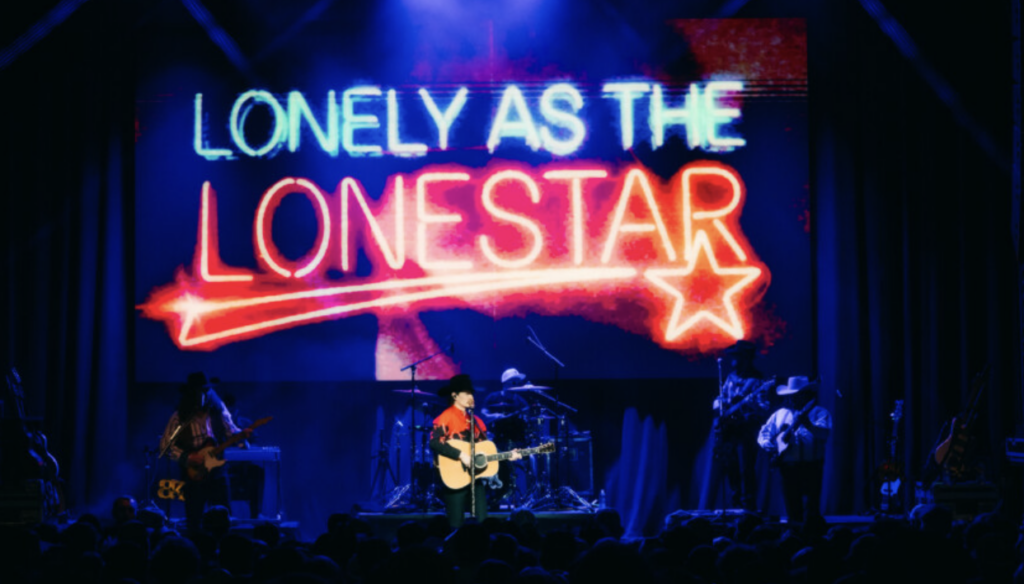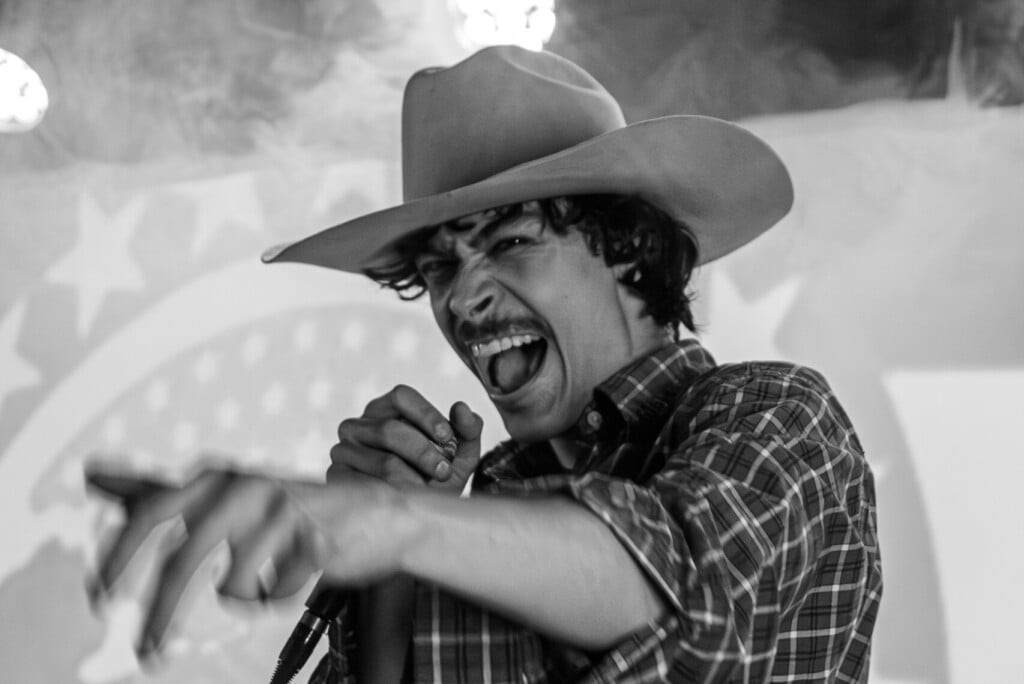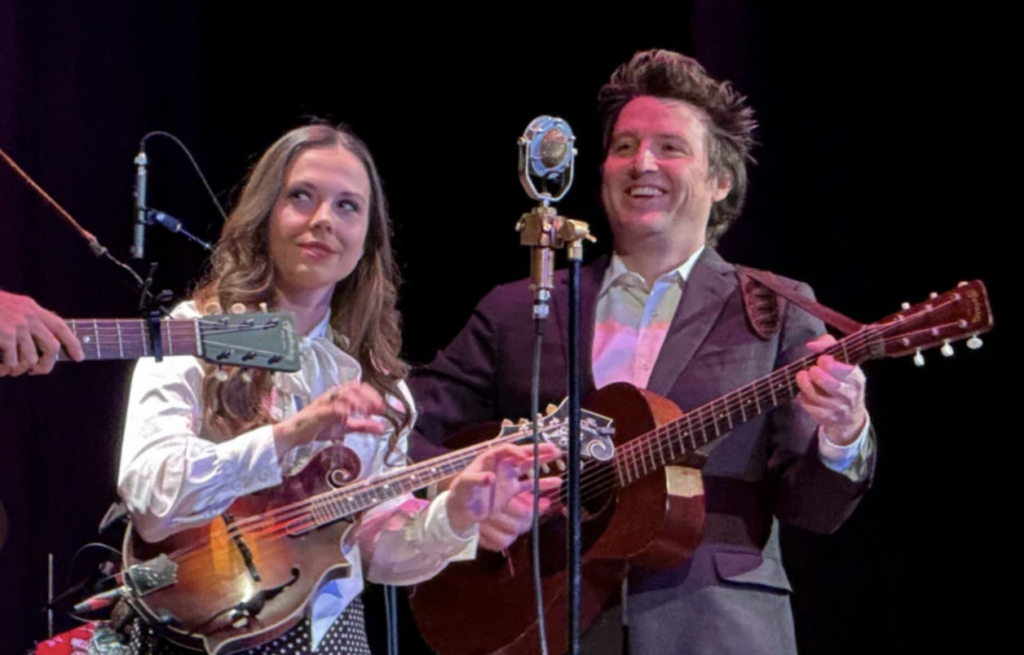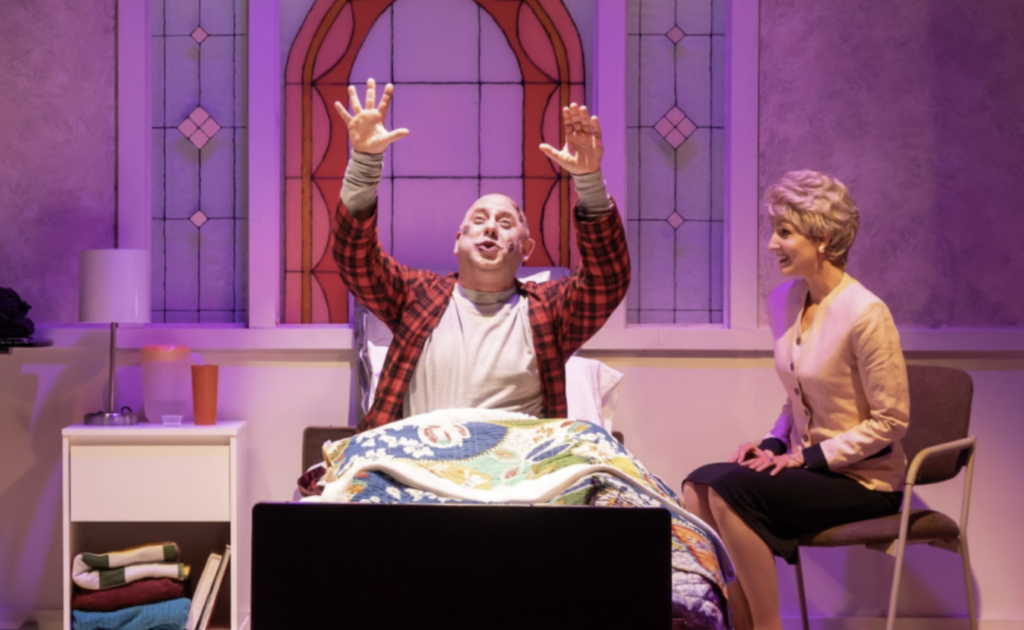Yellowcard’s Ryan Key promises KC Ocean Avenue start to finish at Not Just a Phase Fest
Yellowcard called it quits in 2017, only to return six years later with a new EP and post-rock collaboration with genre-great Hammock.
Now, the pop-punk band has set their sights on a summer tour with Third Eye Blind beginning in June. But first? A stop in Kansas City to play Not a Phase Fest at Legends Field on Sunday, June 2 with Boys Like Girls, Bayside, and Senses Fail.
We chatted with vocalist Ryan Key about that upcoming precursor for their U.S. tour, how life is going since coming back, the opportunities and drawbacks for music during the social media age, plus more.
The Pitch: What is it that drives you? This is a question that I am genuinely curious about with all artists because it can be so easy to pack it in and do something else for money. I know you have remained active for over two decades now, doing multiple projects at the same time, as well as also doing a Star Wars podcast. How do these life decisions work for you?
Ryan Key: I feel like a lot of it stems from the fact that I just don’t really know how to do anything else other than be a creative person. The only other thing in my life that I’m familiar with would probably be the automotive industry and cars. My dad was in the car business my whole life growing up—so it’s either this or a polo shirt and khakis on the sales floor, and I just don’t think that’s for me. I think I enjoy the challenge of it. I like the ‘fly by the seat of your pants’ sort of nature of this industry, where you have to stay active and you have to be aggressive, and you have to stay inspired to succeed. That motivates me and drives me.
The last time you played a festival in KC was when you played Warped Tour in 2016. You guys played Warped five times in Kansas City. Do you have a cool story from one of those dates here, or just from doing that festival in general? I was at your 2014 show and I remember Nate Young played drums for you guys. Anberlin was my favorite band in high school.
I think all of the Warped Tour shows in 2016 were pretty monumental because, at the time, we did truly believe that we were on our way to the final chapter of our time as a band. Warped Tour had been such an integral part of our career and our growth as a band. Saying goodbye to the band, but specifically saying goodbye to Warped Tour at that time, was kind of a double whammy. Everyone was saying goodbye to Warped Tour. How long did the tour go after that? Maybe it went two or three years after that. It was kind of in the air that year that Warped was going to be going away. We felt that and also knew it was going to be our last time. Even now that the band has miraculously reunited and are doing all these amazing things, that was actually our last Warped Tour.
Specific story? I don’t know. I remember there were a lot of emotions that summer because we were very close to the people who ran Warped Tour and started Warped Tour. Kevin Liman really gave us a chance and took a chance on our band when we were very young, to let us come out and do Warped as much as we did. We wouldn’t be where we were without them, that is for sure. I remember the Pomona show on the ‘16 tour. I have a couple pictures on my phone that I often go back and look at because it was just this ocean of people. We closed that night – when you played Warped Tour it’s the luck of the draw where you’re going to play for the day. You could be an air quotes “headlining band” and play at 11 o’clock in the morning, that’s kind of the beauty of it, it’s an even playing field. But we closed that night in Pomona, which is one of the bigger shows, it was kind of the So Cal/LA play for Warped Tour that year. I don’t know how many people it was but the photos are amazing and I just remember that being a very emotional show, where we sort of felt like “Wow, we’re quitting.” Very bittersweet.
But we ran into that a lot on what was, at the time, the final tour. Part of the reason we decided to disband was because we were really struggling to get butts in the seat. And then, when we did announce that we were not going to be a band anymore, all of a sudden, the seats were full again. It was a tricky thing, you know, because “Is this just because we’re leaving?”, which it was. Or is it going to be good again and we shouldn’t break up, you know? But yeah, that Pomona show was very special.
I know you guys haven’t really had a studio drummer since 2016 and have been using Nate for the last two releases. Is this your guys’ plan moving forward, to use him and then tour with somebody else because of his other responsibilities?
Yeah, we have a pretty solid system with Nate drumming in the studio and then Jimmy Brunkvist, our buddy from Sweden, has been touring with us since 2016 and is our touring drummer. He’ll be out with us this summer and all the festivals we’re playing this year. We’re doing the UK and Europe in November, too, and Jimmy will be with us. Nate played drums on Lift a Sail and the self-titled album, so when we decided to get back together and start touring super hard, that wasn’t really an option for Nate at the time and we kind of had to make a decision. It was a tough conversation to say, “Jimmy, we love you, but we sort of already have this relationship writing and recording with Nate, but we love touring with you and we love the energy you bring to the stage.” They’ve both been super cool about the whole setup. I think we’re all just happy to be making music together, in whatever capacity that may be.
The last regular show you played here was in 2015 at The Granada in Lawrence with Finch, so this was before your final world tour. I know you did a fair amount of shows there in your heyday back in the early 2000s, but you haven’t come here that much compared to your complete run as a band. Are you treating this upcoming festival show like any other tour date given you have the full U.S. tour following that a week later? Does it feel like a warm-up for that two-month run?
We’re going to play Ocean Avenue all the way through for that show and maybe do a little encore. We find that that really goes over well at festivals because you get a lot of people that are just stopping by that aren’t necessarily hardcore fans, and then you play “Ocean Avenue” third in the set and people are like “Oh, I know this band.” It can really draw a lot of people to the stage that might not otherwise. I think at Phase Fest it’s probably likely that everyone’s there to see us and the other bands that are playing, but in general it’s just a great festival play. Whether you’re doing a more pop-punk and emo-themed festival or like a radio show, we find that works well. Also, we’re all going to be flying in right to that show and then heading to Washington to rehearse for the Third Eye Blind tour, so jumping in and playing together with Jimmy and the band after not playing since February together, Ocean Avenue is something we can just jump into and know it’s going to be tight, know it’s going to be locked in. We know how those songs flow together in the set. We don’t have to come in early for rehearsal days, we can just jump up and put on the show. So that was part of the decision, and then also, we’ve found that it’s really successful in the festival setting.
I know you probably have heard enough about “Ocean Avenue” at this point, but that was the song that made me dig into your discography. It was a passing period song at my high school, so I would hear the chorus of that about five times a day and it was always the one that stuck with me the most. I didn’t know who you were at that time, so that’s a special story for me. Whenever a group has a song that big I think of Kurt Cobain and “Smells Like Teen Spirit” and not wanting to play it live every night. How do you manage Yellowcard with a song like that – that fans are always expecting to hear when they come to your shows?
I don’t have the Grammys and the Diamond records to stand on that Kurt Cobain does. No judgment on Kurt Cobain, who is one of the most influential musicians of my entire life, but I just prefer to do what gets fans excited, and that’s playing “Ocean Avenue”. It’s never really been a question for me, it’s never been something I struggled with or bothered me knowing that that song is a must-play at our shows. It makes people happy and the longer we’re able to make people happy doing what we do, the longer we get to do what we do. It’s never been an issue for me.
Your end and comeback feel very reminiscent of Anberlin (final album, return with EP, both signed to Equal Vision). I know Nate did some work on Childhood Eyes. Is this something you’ve talked about with Stephen and their crew?
When we decided to bail, we literally hit them up and were like, “Can we just use your blueprint for the breakup?” They said, “Sure”. We actually made similar t-shirts, city-specific t-shirts, like they did. So we did take a lot of notes from them and the process that they went through to plan their exit. I think, similar to us, they really, really thought they were never going to play shows again or make music again. That was definitely the case for us. We make the joke that the world actually ended in 2020 when COVID hit and it was way worse than we know and we’re in an alternate timeline, that’s why all of this amazing shit is happening for Yellowcard. We really did step away because we were struggling to keep it together and make ends meet as a business. Now there are so many amazing opportunities. I don’t see the end. We keep getting phone calls with more incredible shows to play and places to go and music to make.
I know you’ve had sort of a recent musical palette venture into post-rock, which is kind of what inspired A Hopeful Sign. Why is that something that you respond to now? Are lyrics sort of distracting at this point? I’m curious whether you have a Mount Rushmore of post-rock groups.
My venture into post-rock is actually not recent at all. My post-rock journey began in 2005. I was in my apartment in New York watching Friday Night Lights, the film, and was just blown away by the music and wanted to find out what it was. It was more tricky to figure that out back then than it is now. So I did some Internet digging and figured out that it was Explosions in the Sky, who have become, over the last 20 years, one of the Mount Rushmore artists in my life, not just post-rock bands. I wait on the edge of my seat for every single record that they release, every project they do, every soundtrack they score – I love them. They really were the gateway drug to other post-rock bands for me.
In fact, when you say recent, I would say that more recently I have been pretty much exclusively interested in electronic music and have been for several years now. And I think the instrumental nature of post-rock bands and ambient bands like that led me into the more ambient and electronica and stuff that I’m into now. It’s definitely been a journey away from rock ‘n roll and pop rock and punk rock and the stuff that I grew up on and formed who I was as a songwriter.
Collaborating with Hammock was an absolute dream come true. I’ve been a huge fan of the band for many, many years. Marc [Byrd] and I both lived in Franklin, Tenn. – he’s still there, I lived there for six or seven years – and we connected and became buds. I still can’t believe it, because it’s just like listening to a Hammock record with me singing on it. It’s not really a Yellowcard record, you know? It’s kind of one of those things where people say it’s the collaboration that no one knew they needed until they had it. It is a very off-the-wall, unorthodox collaboration of artists – to take a pop-punk/pop-rock band like Yellowcard and have ambient, post-rock built around all of these old songs. I love A Hopeful Sign, I’m so proud of that record. I’m so grateful that we got to do it and to hear all the work that Marc and Andrew Thompson put in. They did all the work. I sent them a piano and a vocal, that’s it. Everything on the record is original content from them. It really is like a new Hammock album and I love that.
Obviously, back in the day, the media landscape for music was much different, it was all about TV air time, like Total Request Live, and radio, while today it’s more about YouTube and TikTok. How do you feel about this? Is it frustrating coming from starting in the 1990s? Or do you find benefits with it?
At the risk of sounding like an old man, but I was born in the ‘70s, I think what TikTok is doing to popular music is very disappointing. I know for a fact that there are A&R reps in the business signing young artists and when they’re making music they’re basically instructing them that they need to have their songs start with the chorus of the song, full-blown – all the harmonies, all the leads, everything, as if it was the third chorus of the song. The final climax moment of a piece of music needs to be the first note, because if you don’t do that, a TikTok influencer is not going to pay attention to a music intro or a down verse intro, anything like that. It’s got to be the catchiest, hookiest, biggest part of the song to make it into a TikTok video to go viral, and that’s literally defining how young people are writing music and you can see it.
You can go listen to the records and all the songs are two minutes long and they all start with the chorus. There has always been sort of the Beatles formula of pop music—verse, chorus, verse, chorus, bridge, chorus—or as The Beatles would call it, middle eight as the bridge. That’s always been there, so there is a formula to it. I’m not dissing on having a formula to your songwriting. I just think that – TikTok in particular – has, in a lot of ways, taken away from the patience and the anticipation and the excitement of listening to music. A song that builds and develops and grows and reaches a pinnacle point of creativity and emotion, to me that’s songwriting. And dumping the whole thing on you from the very first second you hear the song, what’s left to wait for? Why listen to the rest of the song? I know that’s happening and I really think that it’s a bummer.
I think the positive I would take from social media outlets like TikTok and Instagram…it works for us for Yellowcard, even though we’re an older band. A legacy band, you would probably call us at this point. We are able to use it as an incredible tool to connect with our fans and promote what we’re doing and do it in a very personal way. A lot of content comes directly from us, from the band members, and I think that’s amazing. I think as a young artist, obviously, you have so many more tools to promote your music and your brand on your own without needing to sign to some big label that’s going to take all your money. I think there’s a lot more DIY capability with social media, I just think it’s a dangerous slippery slope because I don’t think social media should be defining the way songs are written. But that’s just my personal opinion.
I always end my interviews by asking an artist what the last great thing they listened to was. It can be something that just came out or something that was released in the ‘60s.
The new Christian Loffler record, it’s called A Life. Christian is a producer, DJ—whatever you want to call an electronic artist these days—from Germany. He makes incredible music and I think his newest album, A Life, is his best work yet. It’s super uplifting and hopeful and positive at a time, I think, when we all need music like that. So go check out all of Christian Loffler’s music, but I love his new record, A Life.
Yellowcard plays Not a Phase Fest at Legends Field on Sunday, June 2, with Boys Like Girls, Bayside, Sense Fail, Emery and more. Details on that show here.





